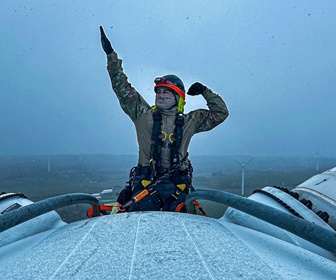A UK team, led by DNV, has begun work on a collaboration project funded by Innovate UK, and in cooperation with the US National Offshore Wind Research & Development Consortium (NOWRDC). The research project – running up to March 2023 - aims to reduce the levelised cost of energy (LCoE) in offshore floating wind by investigating the effects of using wake steering (a wind farm control (WFC) strategy) on floating wind farms.
In the UK, DNV, Durham University and Marine Power Systems combine expertise on wind resource, wake modelling, wind farm control, floating platform design and economic modelling in the research project CONFLOWS (CONtrol of FLOating wind farms with Wake Steering). The U.S. project team, led by the National Renewable Energy Laboratory (NREL), in partnership with Cornell University and Equinor, will focus on specific regions of North America with potential for offshore wind and will perform optimisation studies using wind farm control.
The economic analysis undertaken will give an overview of the effects of the use of wake steering techniques in offshore floating wind farms and whether they can have a positive impact on the project costs. The consortia will share data and knowledge beneficial for the modelling of site-specific meteorological conditions and complex wind farm wake scenarios due to wind farm control applications, to advance the offshore wind industry as a whole. A strategy known as wake steering attempts to deflect each turbine's wake away from downstream turbines, allowing increased overall power production, and longer lifetime of the turbine through reduced fatigue damage.










